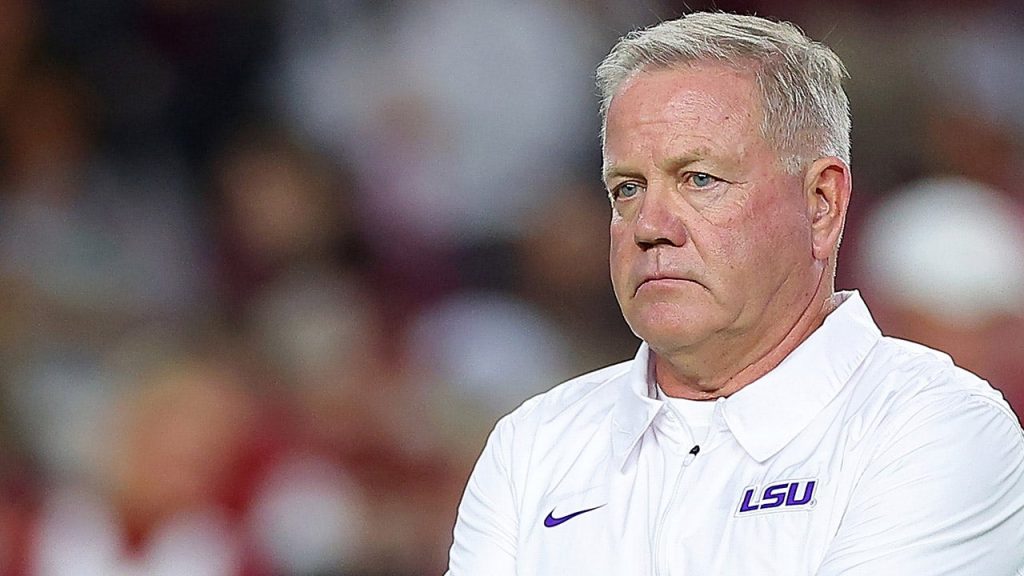LSU athletics found themselves at the center of a controversy regarding whether student-athletes should be required to be present for the national anthem. This issue arose after the LSU women’s basketball team faced backlash for missing “The Star-Spangled Banner” before a game against Iowa. Louisiana Governor Jeff Landry urged state officials to implement a policy that mandates student-athletes to be present for the national anthem, sparking a debate on the matter. LSU football coach Brian Kelly responded to Landry’s remarks by stating that the team would follow any directives from the administration regarding the national anthem.
Kim Mulkey, the head coach of LSU’s women’s basketball team, clarified that it was not intentional for her team to miss the anthem. However, Governor Landry believed that skipping the anthem highlighted a bigger issue in college sports. He emphasized the importance of respecting the national anthem and called for college boards to establish policies requiring student-athletes to be present for the anthem. Landry stated that showing respect for the flag and those who protect the nation is crucial, and not having a policy in place is disrespectful. He expressed a desire for unity and civility among college athletes by emphasizing the significance of standing together under the flag and respecting the anthem.
The debate surrounding the national anthem in college sports raised concerns about patriotism, unity, and respect for American symbols. Coach Kim Mulkey received support from Landry despite his call for a policy change, indicating that the issue was bigger than the actions of one team. Governor Landry’s stance on the anthem sparked a dialogue about the expectations for student-athletes and the role of the national anthem in sporting events. The controversy at LSU shed light on a broader conversation about the intersection of sports and patriotism, prompting discussions on how to promote unity and respect in college athletics.
Louisiana Governor Jeff Landry further emphasized the need for college athletes to understand the importance of unity and respect for the nation’s symbols to instill civility. His call for policies requiring student-athletes to be present for the national anthem aimed to reinforce the values of patriotism within college athletics and uphold American traditions. The debate surrounding the anthem issue highlighted the complexities of balancing personal beliefs and institutional expectations in sports. As discussions continued, the focus shifted towards finding common ground and fostering a sense of collective responsibility among student-athletes when it comes to honoring the national anthem.
LSU’s response to the controversy surrounding the national anthem included statements from athletics officials and coaches acknowledging the governor’s perspective and expressing a commitment to following any potential policy changes. Brian Kelly’s statement on behalf of the football team indicated a willingness to comply with directives regarding the anthem. The dialogue spurred by the anthem debate showcased the varying viewpoints on patriotism and symbolism in sports, prompting a reexamination of the policies and expectations for student-athletes. The ongoing conversation sought to strike a balance between individual freedoms and collective expectations in navigating issues related to national symbols in collegiate athletics.
In conclusion, the anthem controversy involving LSU athletics underscored the ongoing discussions about patriotism, unity, and respect within college sports. Governor Landry’s call for policies mandating student-athletes to be present for the national anthem sparked a debate that expanded beyond a single incident to address broader societal issues. The differing perspectives highlighted the complexities of navigating personal beliefs and institutional expectations in the context of sporting events. Moving forward, the focus remained on finding common ground, promoting civility, and upholding American traditions while respecting the diverse viewpoints within the college athletics community.


